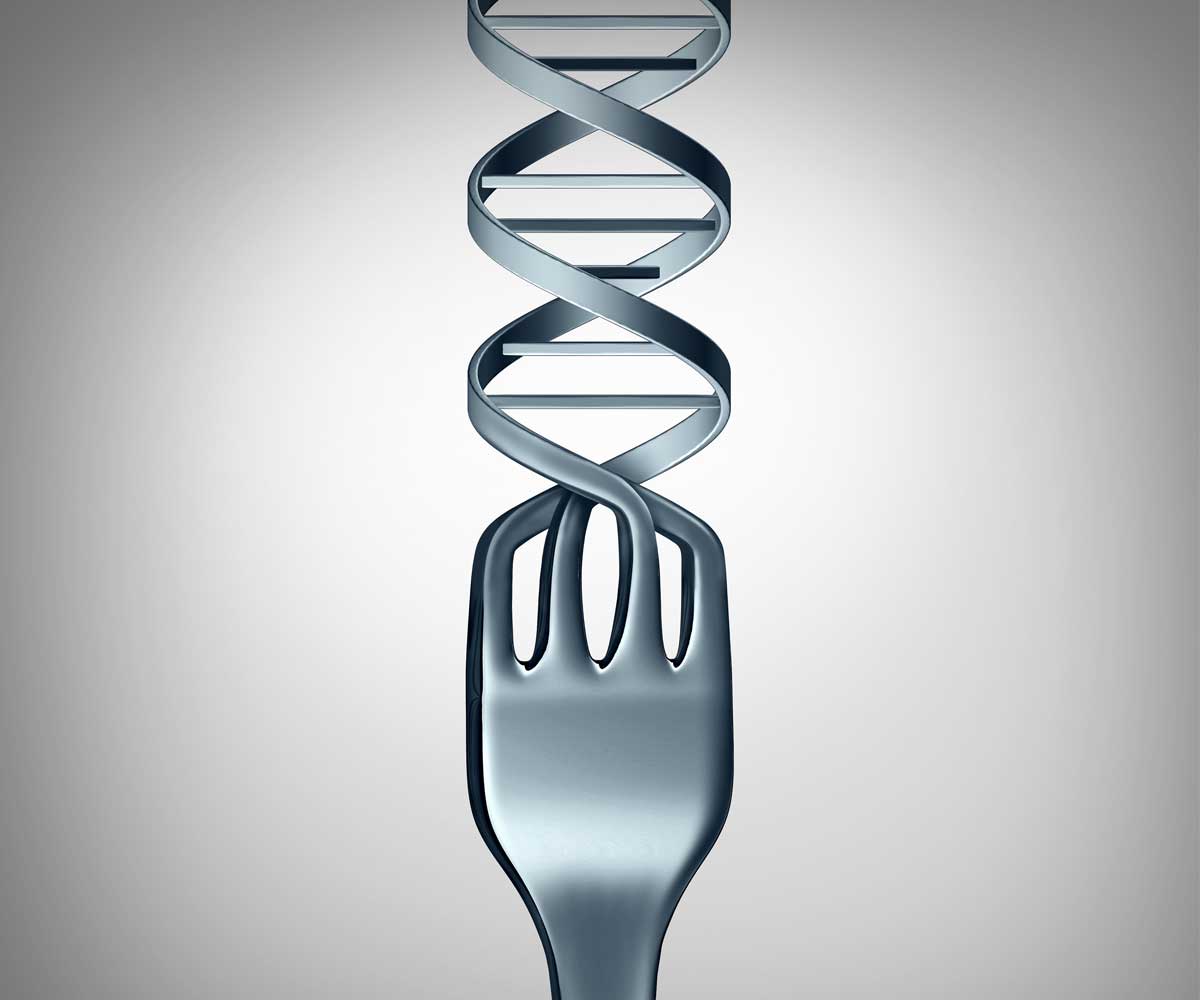From personal training sessions to choosing a half-shot soy flat white, the way we look after our bodies is becoming increasingly singular in a quest for optimal health.
Now, scientific developments are allowing us to get even closer to finding the formula for our individual needs, so close, in fact, a lab technician can zoom in on our DNA sample and file a report with all the knowledge needed to determine how best to eat, exercise and act.
Anyone who has tried an unsuccessful fad diet, or worse, tried the same workout programme as a friend only to find your dress size not budging as your boot camp companion sheds the weight, will understand that a one-size-fits-all approach to fitness and wellness goals can be frustrating.
“It seems like every other week we’re told a certain type of food is good, only for a few weeks later to be told it’s bad,” says Richard Trendle of New Zealand-wide transformative rehabilitation centre Proactive.
“The typical advice we are getting is so conflicting that people need to make sure the diet and exercise programme they follow is the best one for them.”
Nutrigenomics, the study of the interaction of nutrition, lifestyle factors and genes, especially with regard to preventing or treating diseases, is used by a number of health professionals, who work with international DNA labs to find how individual clients can live a healthier life.
“As we get older, it’s common to accumulate ailments,” says Trendle.
“Most of these health risks can be reduced by ensuring we follow effective dietary and lifestyle advice.”

Avoid risks by getting some dietary advice.
Proactive provides DNAFit tests from a lab in London and offers a comprehensive report and one-hour consultation for $599. Although Trendle says the technology is still relatively new – genetic testing was first tried for health and wellbeing applications in the early 2000s – it is a fast-moving industry.
“Thanks to advancements in the cost of the genotyping process, and progression in the research around genetic factors, the last five years have seen this field mature.”
Intrigued to find how such sci-fi seeming diet and lifestyle advice works, I had my DNA tested by another genetic profiling company named Fitgenes and interpreted by one of its accredited practitioners, Emily Shaw.
An exercise physiologist as well as operations manager at Nutrisearch in Hawke’s Bay, which trains Fitgenes practitioners, she was able to explain the business of DNA testing as well decode my Fitgenes Health and Wellbeing Genetic Profile Report.
After a brief consultation, a simple, 30-second swab of the inside of my mouth was all that was needed before my sample was whisked away to the Fitgenes’ Australia-based lab. It can take up to three weeks for the lab to process the sample, but the interpretation of the report is the most important aspect.

With a huge amount of information in one report, Shaw asked me to take a comprehensive online survey about my lifestyle and medical history to be able to see my genes in the context of my environment and find the most important areas to focus on.
Nutrisearch has trained around 90 Fitgenes providers nationwide. Coming from a range of different disciplines, accredited practitioners’ advice based off DNA results may vary, for example a nutritionist will be more inclined to look at a DNA sample to find food and supplement suggestions, a GP may keep pharmaceuticals in mind and a chiropractor will be interested in how your body should be moving.
Epigenetics, the understanding that our DNA is expressed through signals from outside the cell, which are informed by dietary and lifestyle choices, is the basis of the guidance given to me. “Every time you eat something, you have a chance to make a positive or negative impact,” says Shaw, who suggests I try an anti-inflammatory, primarily plant-based Mediterranean diet – high in vegetables, nuts, legumes, wholegrains and olive oil – since my genes show my body is prone to inflammation.

Inflammation is an underlying driver of many diseases, including cardiovascular disease, so it’s a fair warning to look after my body now.
“For many, a DNA test is a wakeup call,” says Shaw. Managing stress is another key way to keep inflammation and other genetic issues in check.
“People underestimate how damaging stress can be on our body systems and how it damages our DNA,” says Shaw. As someone who avoids dieting, I find myself vowing to swap the potato salad for a Greek one and make my newfound food group a pleasant and social experience now that I know the importance of eating for my gene types and keeping stress levels down.
Our DNA never changes so this genetic profile, which is typically $500 plus a consultation fee, is information I can refer to in years to come. Now that health is dubbed the new wealth and looking after ourselves is seen as a luxury by many, this seems like a savvy investment.
But because our genes are predetermined, DNA results may not always be relevant to the present day and often extra testing, such as specific blood tests, are recommended to further understand how particular gene variants are affecting the body in real-time. For example, it is recommended I take a food allergy test to determine if dairy is adding to my inflammation issues.
While some advice seems like common sense, such as getting out of the office for a walk at lunchtime to unwind, I’m told more specifically that my genetic make-up is better suited to endurance and aerobic exercises and my below-par vitamin D metabolism explains why my mood is so strongly affected by the weather (a condition known as seasonal affective disorder) and means I need to keep an eye on my vitamin D level.
“Sometimes you are confirming what you already know and that gives you the commitment to make that change,” says Shaw.
“But this is still individualised and personalised intervention.”
Naturopath and founder of Christchurch-based Smart Genes, Vanessa Winter, says people are becoming increasingly proactive when it comes to lifestyle choices. A practitioner for the SmartDNA genetic testing service based in Australia, she offers the test and a comprehensive consultation for $695.
“Our health and wellbeing is not at the mercy of our genetic make-up and we do have the power to alter our genetic destiny,” she says.
“This is the point of genetic testing from a naturopathic perspective – know our inherited weaknesses, make alterations and prevent ourselves from going down the pathway to disease.”
If we know our body’s unique genetic profile, she says, we understand the behaviours that are less desirable and can implement changes to maintain health and age well.
“Your genes may load the gun, but it is your diet, lifestyle and other environmental exposures that pull the trigger that cause disease and premature ageing.”


